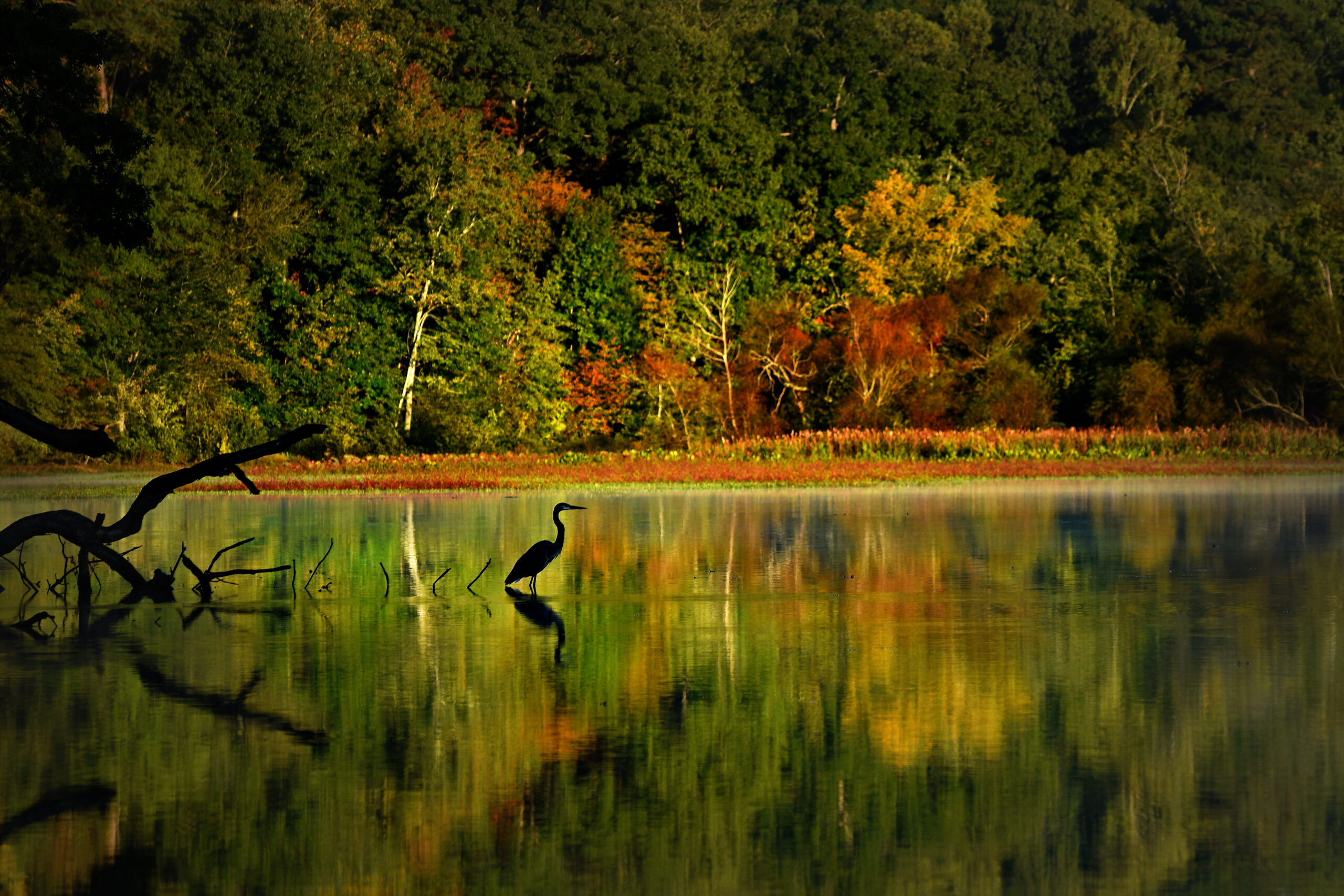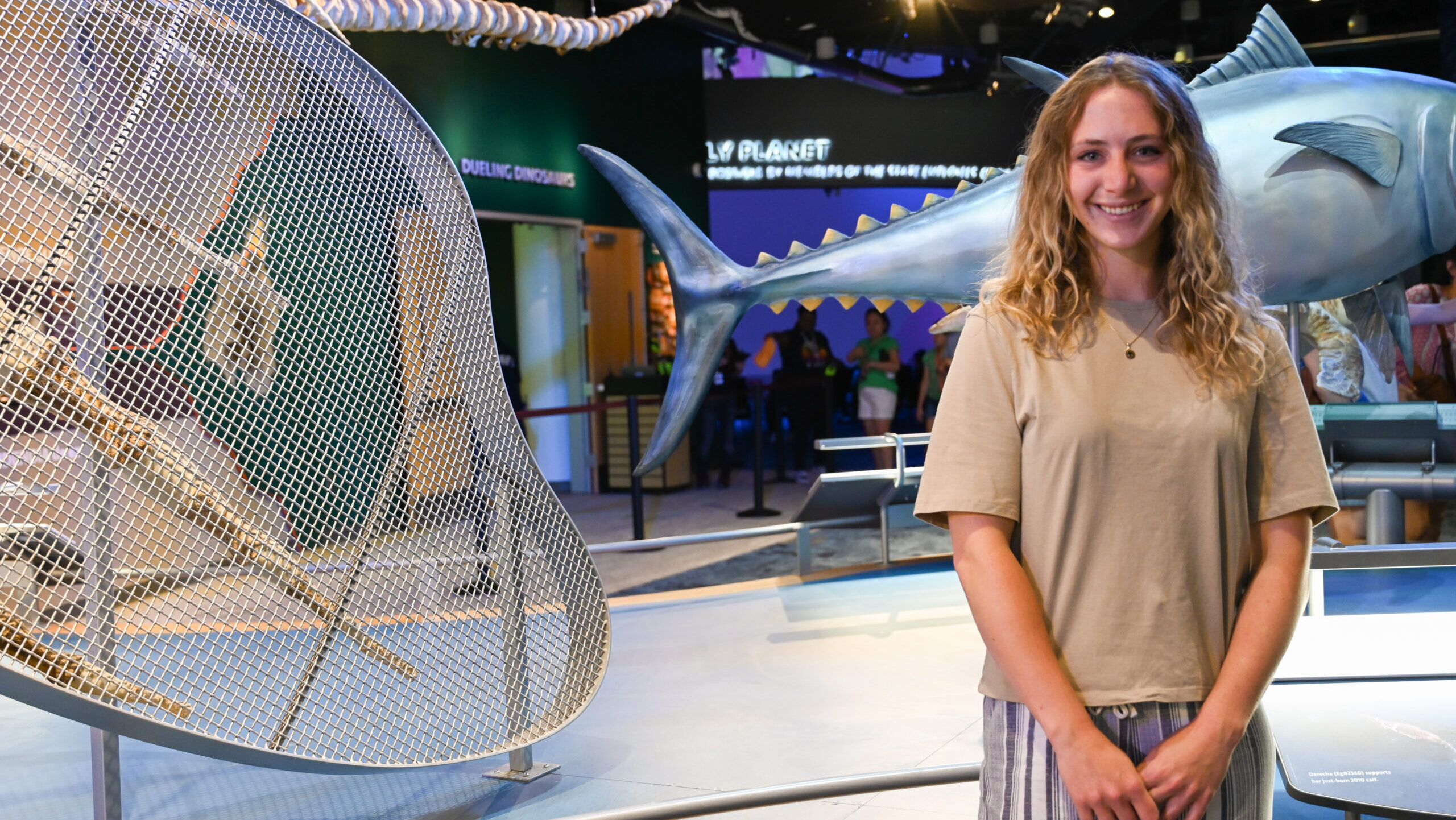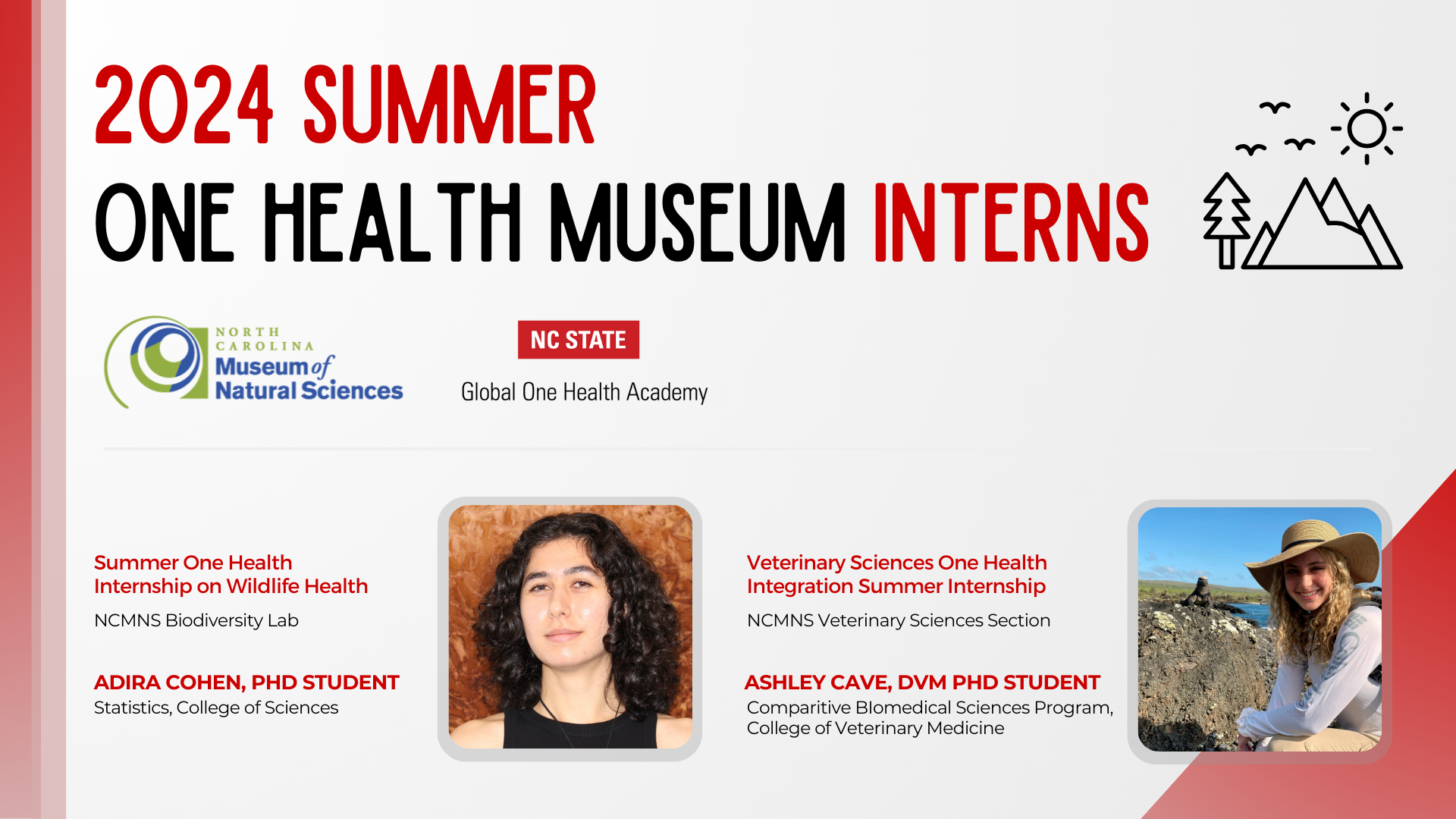
One Health Museum Internships
The Global One Health Academy has partnered with the North Carolina Museum of Natural Sciences to offer One Health summer internships. NC State graduate and veterinary students can apply to participate in these paid experiences to grow their scientific and professional skill set, gain experience in public engagement of science, and broaden their knowledge of One Health topics.
Eligible applicants of the One Health Museum Internships must be NC State graduate or veterinary student with an interest in One Health – the idea that the health of plants, animals, humans, and the environment is interconnected and must be addressed holistically. NC State students from diverse disciplinary backgrounds interested in gaining further experience in the incorporation of One Health concepts in teaching, research, and public engagement associated with wildlife health or veterinary sciences topics are encouraged to apply.
Applications Materials
- Cover Letter with Personal Statement. Include your graduate or veterinary program status, your interests in One Health and wildlife health or veterinary sciences (depending on the internship opportunity applied for), what you hope to gain from the internship, and why you are the best fit for the position (e.g., relevant leadership and research experience, other skills and qualifications as listed in the internship description). 2 pages max.
- Abbreviated Curriculum Vitae (CV) or Resume. Include the most recent and relevant material. 3 pages max.
- List of references. The contact information for 3 professional references that can be contacted if needed. One reference should be your primary academic advisor.
- For the “Veterinary Sciences One Health Integration Summer Internship,” it is recommended that at least one reference be a veterinarian or someone working in a veterinary, medical, or public health-associated field if possible.
- A copy of your transcript. Unofficial copies are acceptable.


